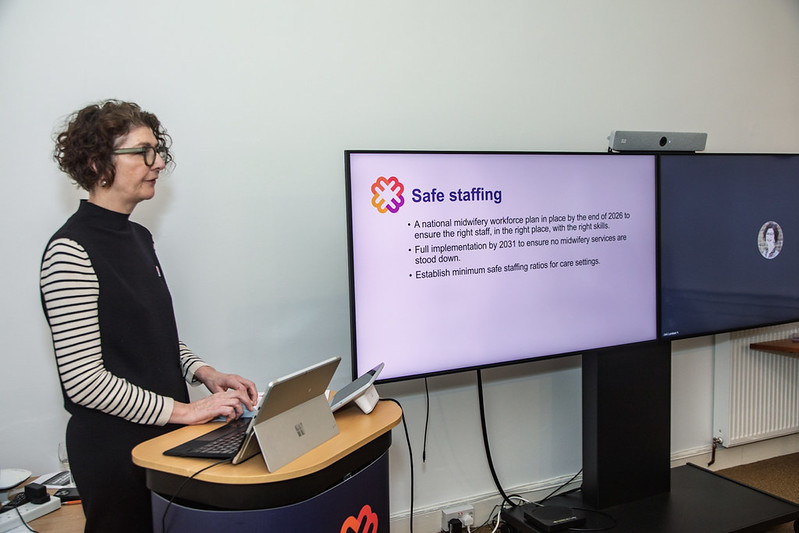Using Welsh in maternity services can transform birth experiences – improving outcomes for women and families. That’s the message the Royal College of Midwives (RCM) is taking to the National Eisteddfod on Friday 8 August, as it hosts a morning of discussion focused on the vital role of the Welsh language in maternity services.
The ability to speak Welsh during labour is more than a communication preference – it’s integral to safe, person-centred care. Research shows that Welsh-speaking women feel safer and more supported when they can communicate in their first language, especially during life-changing moments such as childbirth.
To raise awareness of the importance of the Welsh language in maternity services, the RCM is hosting an event at National Eisteddfod on Friday 8 August. This includes a discussion of the use of Welsh in maternity and neonatal services from 10.30am to 12pm, with a formal session hosted by Plaid Cymru Health Lead Mabon ap Gwynfor at 11.30am.
The event comes on the same day the RCM rebrands in Wales to RCM Cymru (previously RCM Wales) – a change which reflects the RCM’s commitment to the Welsh language and its use among RCM members, and the Welsh-speaking women and families that use maternity services across Wales. The official name change from RCM Wales to RCM Cymru will be launched at the National Eisteddfod, which is the largest cultural festival in Europe. More details about it can be found here.
Julie Richards, Director for RCM Cymru, said: “A Welsh-speaking mother will feel safer in the care of a Welsh-speaking midwife. The experience of childbirth stays with a mother forever. Using Welsh makes the difference not just in the moment but for years to come as they reflect on their birth.”
The RCM is proud to support its members in increasing the use of Welsh in their day-to-day practice – not only for the benefit of women and families, but also for the wellbeing of midwives and maternity support workers themselves.
Julie added: “Staff report that it makes them feel like they can bring their whole self to work and don’t have to leave their language, which is part of who they are, at the door. It’s important that midwives and maternity support workers feel more fully themselves at work.”
There are a range of opportunities to learn Welsh and upskill existing Welsh skills through Health Education Improvement Wales and Dysgu Cymraeg.
Julie said: “The Welsh Government has made a clear commitment to embedding language choice into care, as set out in its recently published Quality Statement for Maternity and Neonatal Services. The statement envisions a world-leading maternity system in which families can receive care in the language they choose, wherever they are in Wales.”
Why Welsh matters in maternity care:
- Improved outcomes: Clear communication during labour is essential for safety and wellbeing.
- Personalised care: Families are supported in their preferred language, respecting cultural identity.
- Staff satisfaction: Midwives feel more fulfilled and connected when able to use their own language.
- Positive experiences: The emotional impact of birth is long-lasting – language plays a key role in how women process that experience.


